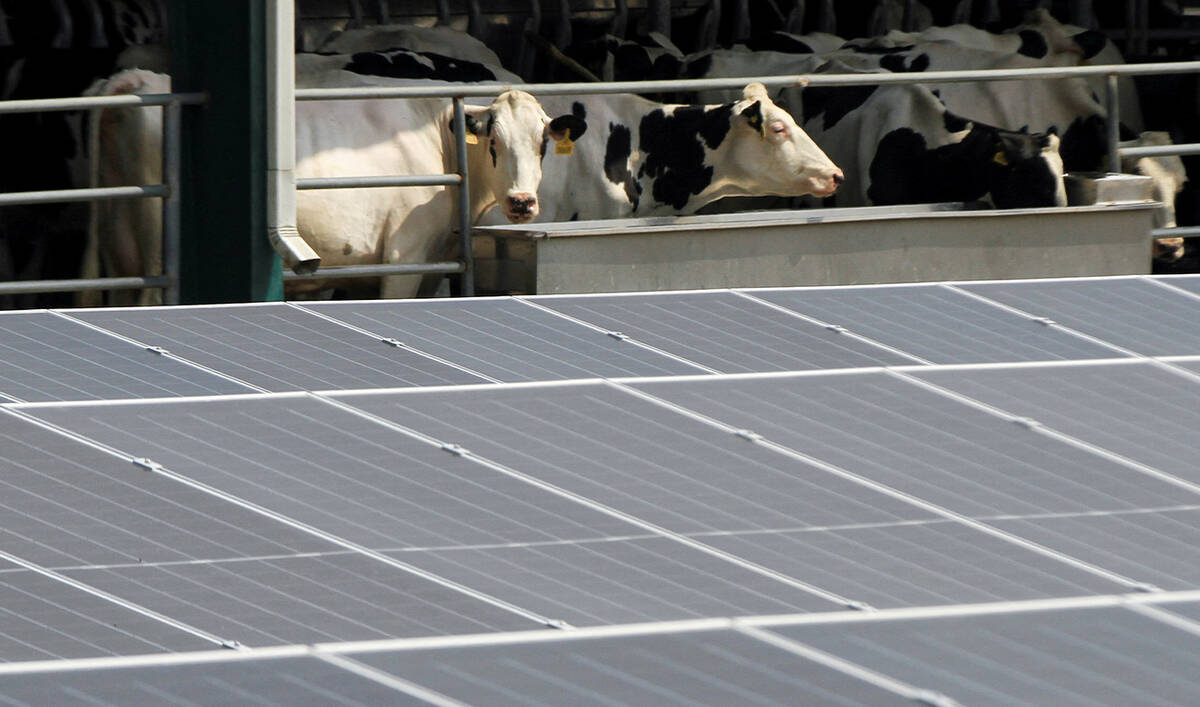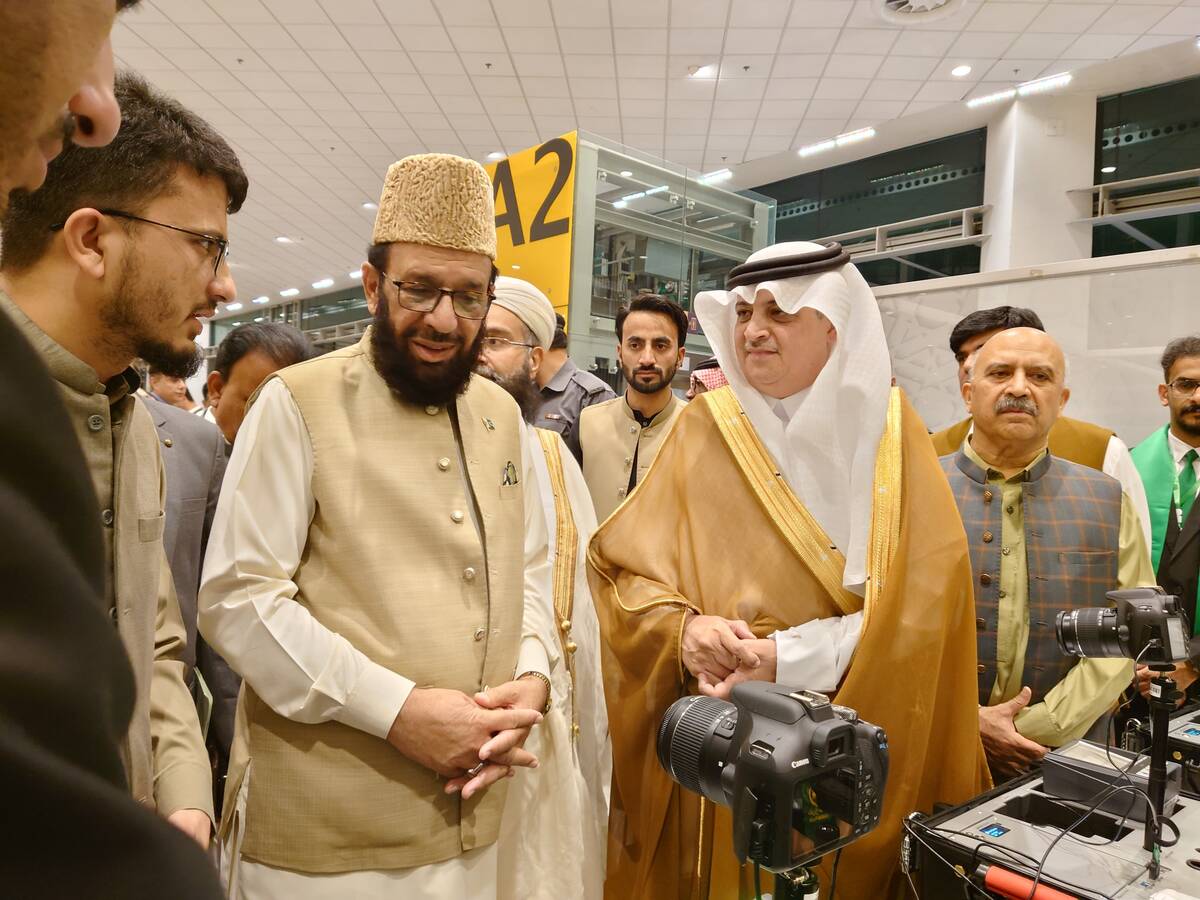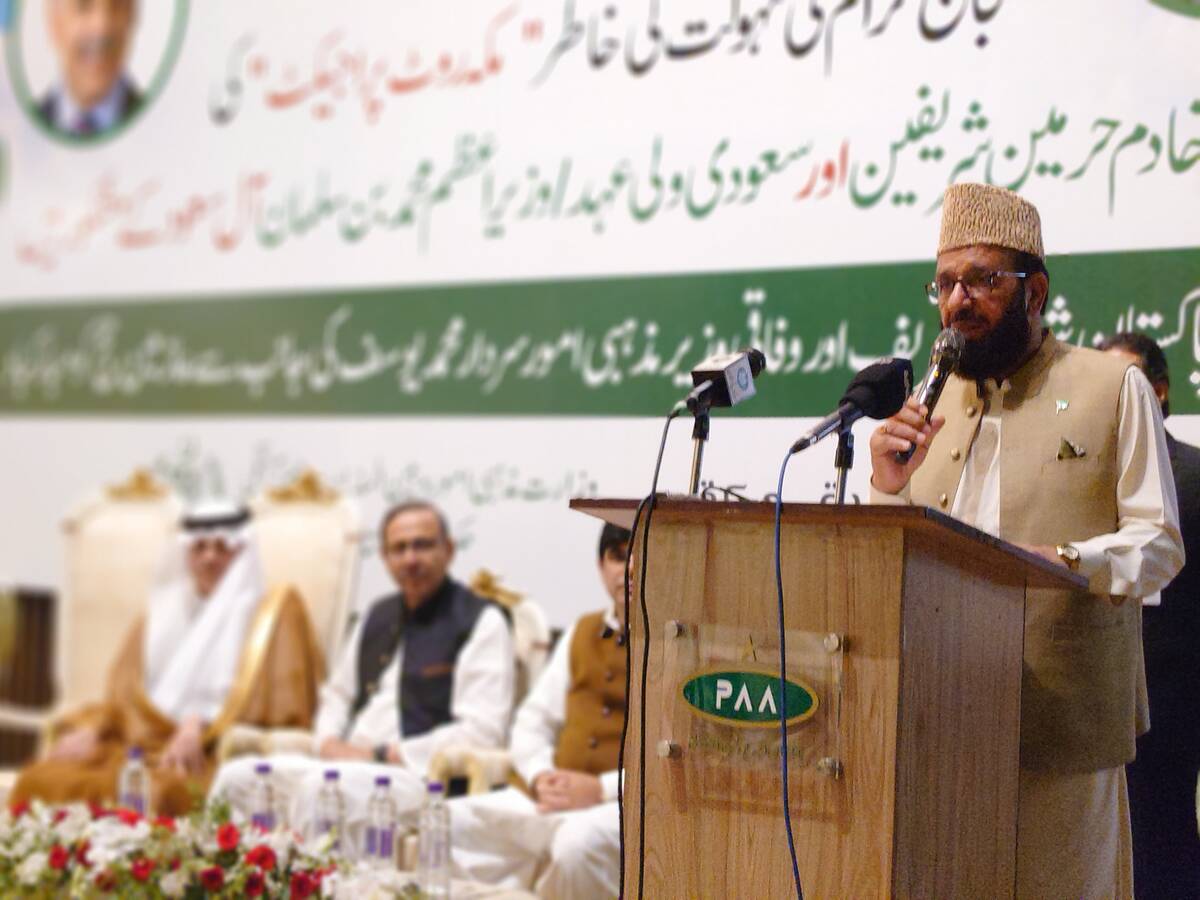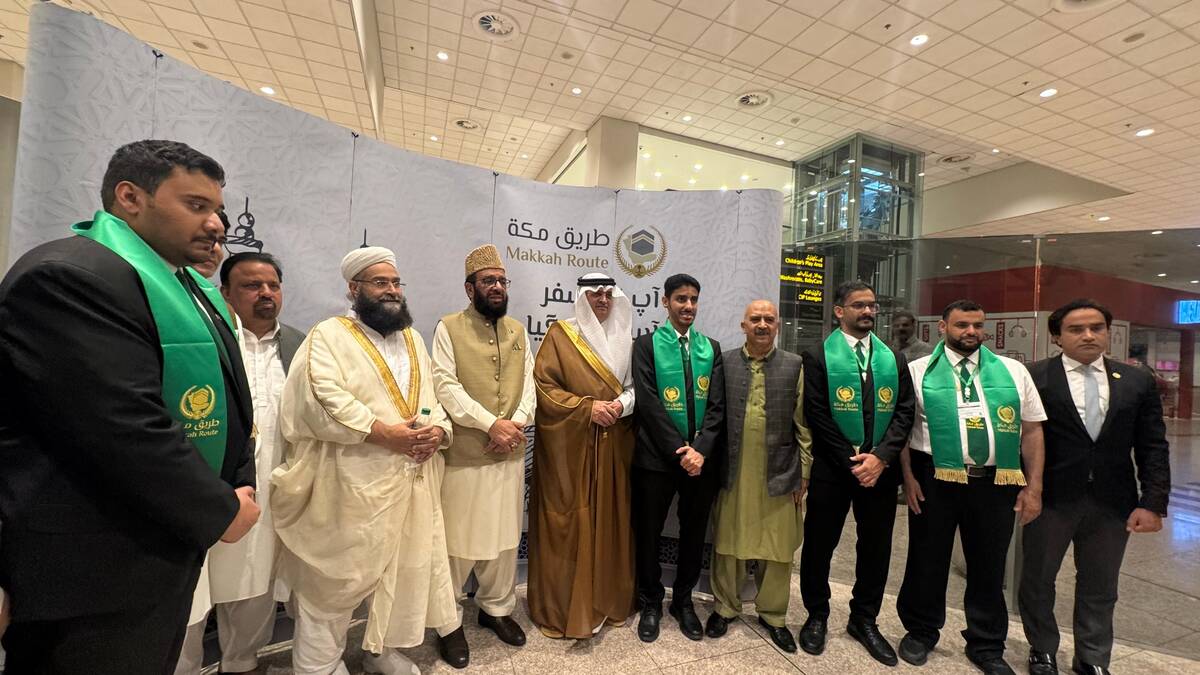ISLAMABAD: The federal government is running an awareness campaign in collaboration with the National Disaster Management Authority (NDMA) amid an ongoing heat wave this month, state-run media reported as the Pakistan Meteorological Department predicted day-time temperatures to “remain above normal” in June also.
Pakistan has been experiencing severe climatic changes due to global warming in recent years which has led to frequent heat waves, untimely rains and droughts.
On May 21, authorities had urged people to stay indoors ahead of a heat wave which is expected to last until the end of the month. An estimated 18 million students are also unable to attend classes because Pakistan’s most populous province Punjab ordered shutting down schools this month due to rising temperatures.
Chief Meteorologist Dr. Sardar Sarfaraz has also warned that the heat wave would “intensify” from May 23 onwards.
“Ministry of Climate Change and the NDMA are spreading mass awareness for the public through adopting preventive measures and to reduce its impacts through issuing adviseries, public service messages, ring back tone and awareness campaigns through television, radio and social media platforms,” Radio Pakistan reported.
Addressing a press conference, the Prime Minister’s Coordinator on Climate Change Romina Khurshid Alam said 26 districts of the country were in the grips of a heat wave since May 21.
Alam said the first wave would last till May 30, the second would begin from June 7-8 and the third one in the last week of June.
May and June were recorded as the “hottest and driest” with higher monthly average temperatures, she added, appealing to the masses, especially children and elderly, to adopt preventive measures.
She noted that the severity of heat waves had increased rapidly during the past few months with 13 districts of Sindh, nine of Punjab and four districts of Balochistan experiencing “severe heat.”
“Global warming is impacting the entire world, and we are seeing its effects in the form of these frequent and intense heat waves,” the official said, blaming deforestation and unsustainable environmental practices for the harsh weather conditions.
“Public awareness campaigns through various media outlets are ongoing to educate people on the health risks and preventive measures.”
Alam said heat waves were accelerating the process of glacier melting and the risk of forest fires, advising the public to remain cautious in national parks, avoid discarding cigarette butts, leave vehicle windows slightly open, and ensure access to drinking water.
“NO RESPITE”
The NDMA is also urging people to stay hydrated and wear light-colored clothing to minimize the effects of heat and farmers to carry out agricultural activities keeping in mind the prevalent weather conditions.
Met Department data showed Jacobabad, Dadu and Mohenjo Daro as the hottest places across the country, with temperature in these cities surging from 49°C on Wednesday to 50°C on Thursday.
“The cities of Jacobabad, Dadu and Mohenjo Daro are known to have 50°C in May. Jacobabad had 52°C in April in 2022,” the chief meteorologist said.
“Harsh weather is likely to persist at least till June 3. There is no possibility for respite, at least for Sindh. The heat spell may break in parts of Punjab but that, too, after June 4.”
Climate change-induced extreme heat can cause illnesses such as heat cramps, heat exhaustion, heatstroke, and hyperthermia. It can make certain chronic conditions worse, including cardiovascular, respiratory, and cerebrovascular disease and diabetes-related conditions, and can also result in acute incidents, such as hospitalizations due to strokes or renal disease.
According to the Global Climate Risk Index, nearly 10,000 Pakistanis have died while the country has suffered economic losses worth $3.8 billion due to climate change impacts between 1999 and 2018. A deadly heat wave that hit Pakistan’s largest city of Karachi, the capital of Sindh, claimed 120 lives in 2015.
In 2022, torrential monsoon rains triggered the most devastating floods in Pakistan’s history, killing around 1,700 people and affecting over 33 million, a staggering number close to the population of Canada. Millions of homes, tens of thousands of schools and thousands of kilometers of roads and railways are yet to be rebuilt.
Government runs awareness campaign as Pakistan in grips of ‘severe’ heat wave
https://arab.news/nq2h3
Government runs awareness campaign as Pakistan in grips of ‘severe’ heat wave

- First wave to last till May 30, second to begin from June 7-8 followed by third one in last week of June
- Heat wave to persist in Sindh province until June 3, to break in Punjab after June 4, Met office says
Pakistan’s solar revolution leaves its middle class behind

- Affluent Pakistanis buy cheap Chinese solar panels to counter rising electricity tariffs
- Most solar panels aren’t connected to sell excess capacity to grid so benefits aren’t widely shared
KARACHI: Amid the forty-degree heat that paralyzed the coastal city of Karachi in April, Saad Saleem blasted his air-conditioning with near-abandon.
Electricity tariffs have surged, but the affluent entrepreneur has been unbothered since he spent $7,500 installing solar panels on his bungalow’s roof as part of a solar boom in Pakistan.
Saleem bought his modules two years ago, as the International Monetary Fund and economically beleaguered Pakistan were hammering out a preliminary bailout program. Under the deal, Pakistan sharply raised power and gas tariffs to support struggling suppliers in the heavily indebted sector.
Pakistanis now pay more than a quarter more on average for electricity, setting off a scramble to install solar modules.
Solar made up over 14 percent of Pakistan’s power supply last year, up from 4 percent in 2021 and displacing coal as the third-largest energy source, according to UK energy think-tank Ember. That is nearly double the share in China, the world’s top supplier of solar panels and a global leader in green technologies, and one of the highest rates in Asia, according to Reuters’ analysis of Ember data.
But the explosion in solar uptake has left out many in Pakistan’s struggling urban middle class, who have been forced to cut back on electricity in face of soaring bills, according to interviews with more than two dozen people, including energy officials, consumers and power-sector analysts. Most of the nation’s solar panels aren’t connected to sell excess capacity to the grid, so the benefits of cheap and reliable power aren’t widely shared.The flight of affluent Pakistanis with solar access from the national grid has dealt a further blow to those relying on pricey conventional sources of power. Electricity companies that lost their most lucrative clients have been forced to additionally hike prices on their shrinking pool of customers to cover operating costs, according to Arzachel, a Karachi-based energy consultancy.

Some observers also blame financial stress in the energy sector on deals Pakistan made with China for Beijing to finance billions of dollars’ worth of power-generation contracts, many of which involve coal-fired plants. Pakistan is behind on many of the payments and has been in talks with China about extending the time it has to repay the debt.
Countries like South Africa also face widening energy gaps after affluent residents adopted solar power. But analysts are watching Pakistan particularly closely due to the pace at which the nation of 250 million has taken to sun-based energy.
“This could serve as a cautionary tale as to how regulation and policy needs to keep up with technological change and rapidly evolving economics,” said Haneea Isaad, an Islamabad-based energy finance specialist at the Institute for Energy Economics and Financial Analysis.
In an interview with Reuters, Pakistan power minister Awais Leghari acknowledged the energy gap but noted that tariffs have come down significantly since June 2024, when the IMF approved reductions.
He also pointed to heavy uptake of solar by rural Pakistanis, many of whom previously had limited access to the grid. Many non-urban Pakistanis have installed small solar setups to meet their power needs, which are typically far lower than those of their city-dwelling counterparts.
“Pakistan has actually gone through a solar revolution,” he said. “The grid is going to get cleaner by the day, and this is something that we’ve achieved as a nation that we are proud of.”
The IMF did not return requests for comment.
ENERGY DIVIDE
Just a few miles away from Saleem’s upscale neighborhood, Nadia Khan has restructured her life to cut electricity costs.
The air-conditioning in the homemaker’s apartment is rarely used and she’s stopped ironing most of the clothes worn by her family of five, citing the price of power.
Khan’s family is not alone in cutting back: Only 1 percent of paying consumers used over 400 units of power in 2024, per Karachi-based consultancy Renewables First, down from 10 percent before the pandemic.
Like others among Pakistan’s masses of apartment dwellers without space to install solar modules, Khan has been shut out of the revolution.
The roofs of many apartment buildings are designated for water storage and other sanitation purposes, while owners of rental buildings have little incentive to invest in solar connections for their tenants.
“We get some sunlight indoors but I can’t seem to think of a way to go solar,” she said. “Why must people living in apartments suffer?“
Meanwhile, land-owning Pakistanis have benefited from the glut of Chinese-made low-cost solar modules shut out of the West by high tariffs.

China exported 16.6 gigawatts of solar capacity to Pakistan last year, according to Ember, about five times as much as in 2022. The average cost per watt of solar-module capacity exported also fell 54 percent in the same period.
However, most solar setups aren’t configured to send spare power back to the grid, limiting their benefit to the wider public. Renewables expert Syed Faizan Ali Shah, who advises the government on solar adoption, has said that less than 10 percent of solar consumers sell excess power to the grid.
Experts and government officials blame high costs and sanctioning delays. Connecting a solar module to the grid usually takes between three and nine months, said Renewables First energy expert Ahtasam Ahmad, prompting many to not bother.
Converting power generated from a solar panel for transmission to the grid also requires equipment like inverters, which typically cost between $1,400 and $1,800, or roughly half the median household income in Pakistan.
SUNK COSTS
Pakistan conglomerate Interloop has installed hundreds of solar modules next to its cowsheds in Punjab province that help provide the electricity keeping its 9,300 livestock cool and their milk chilled.
The investment in solar has been a lucrative one for Interloop, which typically breaks even on solar installation costs after three to four years. Basic operating costs are about three quarters less than payments to the grid, said Interloop energy manager Faizan Ul Haq.
The money Interloop saves also reflects a gaping hole in the accounts of Pakistan’s power companies.

Even though industrial groups and wealthier Pakistanis now consume less grid power, suppliers’ costs haven’t changed proportionately. Fixed expenses like fuel contracts and upgrades to transmission architecture accounted for about 70 percent of supplier expenditure in the year to June 2024, according to an Arzachel estimate.
To cover costs, suppliers have raised prices on their remaining customers, who have already faced repeated increases as a result of the IMF deal.
Fixed costs of 200 billion rupees were shifted to non-solar consumers in the 2023-2024 fiscal year, meaning they paid 6.3 percent more per kilowatt-hour than they otherwise would have, according to Arzachel data.
Solar panel imports have increased since, meaning grid demand is likely to continue dropping, forcing remaining customers to pay more.
“Pakistan’s experience demonstrates a crucial lesson: when governments fail to adapt quickly enough, people take charge,” said Ahmad of Renewables First.
Pakistan begins Hajj flight operations as 442 pilgrims depart from Islamabad under Makkah Route Initiative

- Over 89,000 Pakistani pilgrims will travel to Makkah and Madinah under government scheme via 342 flights
- Pakistan’s religious affairs minister urges pilgrims to adhere to Saudi Arabia’s laws during Islamic pilgrimage
ISLAMABAD: Pakistan kicked off its Hajj flight operations on Tuesday morning with the first batch of 442 pilgrims departing from Islamabad for Madinah under the Makkah Route Initiative, the country’s national airline said in a statement.
Over 89,000 pilgrims will travel under the government’s scheme during Pakistan’s 33-day-long Hajj flight operations. Pilgrims will travel to Makkah and Madinah via 342 flights in total, with the last one departing from Pakistan on May 31.
“The first Hajj flight for this year, Pakistan International Airlines (PIA) flight PK-713 carrying 442 pilgrims, departed under the Route to Makkah scheme from Islamabad International Airport today (Tuesday) at 4:45 am,” a PIA spokesperson said.

Federal Minister for Religious Affairs Sardar Muhammad Yousaf and Saudi Ambassador to Pakistan Nawaf bin Said Al-Malki bid farewell to the pilgrims at the airport.
The Makkah Route Initiative is designed to streamline immigration processes by enabling pilgrims to complete official travel formalities at their departure airports. Initially tested in Islamabad in 2019, the program was later expanded to Karachi, benefitting tens of thousands of Pakistani travelers. This saves pilgrims several hours upon arrival in the Kingdom, as they can simply enter the country without having to go through immigration again.
Around 50,500 Pakistani pilgrims will travel to Saudi Arabia under the initiative this year. The scheme was launched in 2019 by the Saudi Ministry of Hajj and Umrah and has been implemented in five countries: Pakistan, Malaysia, Indonesia, Morocco and Bangladesh.
A total of 28,400 pilgrims will leave for Saudi Arabia through 100 flights from the Islamabad airport, Pakistan’s religious affairs ministry said. Seven special immigration counters have been set up at the Islamabad airport to facilitate pilgrims under the Makkah Route Initiative.
The remaining 22,500 pilgrims will avail the scheme at the Jinnah International Airport in Karachi.

Yousaf advised Pakistani pilgrims to strictly adhere to Saudi Arabia’s laws and respect the local culture during the annual Islamic pilgrimage.
“As Hajj pilgrims, you are traveling to the sacred land as the guests of Allah and ambassadors of Pakistan, and you are urged to respect the laws and culture of Saudi Arabia,” the minister said in a televised address, as he bid farewell to the pilgrims.
Yousaf said he would “soon” travel to Saudi Arabia to review Hajj arrangements.

“I will take every possible measure to resolve the issues faced by Pakistani pilgrims in Saudi Arabia and will personally be among them to provide facilities,” he added.
Yousaf said the government was striving to extend the Makkah Route Initiative facilities to more Pakistani cities in the future.
“I am thankful to the Custodian of the Two Holy Mosques, King Salman bin Abdulaziz Al Saud, and Crown Prince Mohammed bin Salman bin Abdulaziz, for the excellent arrangements,” he added.
Yousaf said each pilgrim was provided a mobile SIM card that contains an application, which can be used to guide pilgrims with directions in case they lose their way in Mina.

Meanwhile, the second Hajj flight of the day departed from Pakistan’s eastern city of Lahore, carrying 150 pilgrims to Madinah at 8:00 am via AirSial airline’s flight PF-7700.
Six flights are scheduled to depart from Pakistan for the Kingdom on Tuesday: two from Lahore and one each from Islamabad, Karachi, Quetta and Multan.
This year’s annual pilgrimage will take place in June, with nearly 89,000 Pakistanis expected to travel to Saudi Arabia under the government scheme and over 23,620 Pakistanis expected to perform Hajj through private tour operators.
Pakistan eyes major boost in date palm exports with UAE’s assistance

- Pakistan currently exports 125,000 metric tons of dates, valued at nearly $50 million, with dry dates worth $35 million mainly exported to the UAE
- The UAE’s potential investment in establishing processing plants will increase shelf life of dates, maximize production and benefit farmers, envoy says
ISLAMABAD: Pakistan aims to boost its date palm exports beyond the current $50 million per annum with the help of the United Arab Emirates (UAE), Pakistan’s envoy to Abu Dhabi said on Monday.
Ambassador Faisal Niaz Tirmizi was recognized by the UAE for his outstanding contributions to date palm cultivation and production alongside Pakistani scientist Dr. Ghulam Sarwar Markhand, who won the prestigious “Influential Figure” award at the 17th Khalifa International Awards for Date Palm and Agricultural Innovation in Abu Dhabi on April 16. The event, under the patronage of UAE Vice President Sheikh Mansour bin Zayed Al-Nahyan, honored global leaders in agricultural innovation.
During the awards, Pakistan and the UAE signed a memorandum of understanding (MoU) for the second Pakistan International Date Palm Festival 2025 that will take place in the South Asian country later this year and marks a new chapter in agricultural cooperation between the two nations, according to the Pakistani mission in the UAE.
Ambassador Tirmizi told Arab News that Pakistan’s annual date production, which normally ranged between 500,000 and 600,000 metric tons, was expected to reach 800,000 metric tons this year.
“Pakistan currently exports 125,000 metric tons of dates, valued at nearly $50 million, with dry dates worth $35 million exported mainly to the UAE, while other destinations include Germany, the UK [United Kingdom], and Turkiye,” he said.
“Since the UAE market is a global re-export hub, it offers great opportunities for Pakistani agro-based products, including dates, to expand trade through different initiatives and marketing strategies.”
Pakistan produces large quantities of dates in Khairpur district of its southern Sindh province, and in Turbat and Panjgur districts of the southwestern Balochistan province. The export of these dates helps the country earn substantial revenue.
Dr. Markhand, who established a Date Palm Research Institute as a professor at Shah Abdul Latif University in Khairpur in collaboration with Pakistan’s Higher Education Commission, said he was excited to see three decades of his hard work earn global recognition at the Abu Dhabi awards.
“We worked on various aspects of date palm research, with major achievements including the micropropagation and tissue culture of date palms using inflorescence explants, a rarely used method,” he said, describing the details of his work.
The scientist said no one ever succeeded globally in producing female plants through this technique, but he successfully propagated several thousand plants, established a nursery, and distributed those plants among growers.
“These plants are now fruiting well, marking a major breakthrough in date palm tissue culture,” he said.
Dr. Markhand said Pakistan, in collaboration with the UAE, could benefit greatly in further developing the sector and increasing its exports.
At the Abu Dhabi awards, the UAE recognized Ambassador Tirmizi’s key role in facilitating high-level exchanges between government officials, private sector leaders and experts that created new avenues for bilateral cooperation in the field of date palm production.
“These efforts have led to the signing of several important MoUs aimed at boosting bilateral trade, enhancing agricultural exports, and promoting joint ventures in agri-tech, food security, and sustainable farming solutions,” the Pakistani diplomat said.
The Pakistani mission actively worked with Abu Dhabi’s Khalifa Award management to help set up processing plants in key areas and boost Pakistan’s value-added date chain, according to Tirmizi.
“Since dates are used in various ways in domestic, industrial applications and value-added product manufacturing, the UAE’s potential investment in establishing processing plants would increase the shelf life of dates, maximize high-quality date product output, benefit farmers with additional income, and generate local employment opportunities in Pakistan’s agriculture sector,” he shared
Panic in Pakistan as India vows to cut off water supply over Kashmir attack

- India has suspended the Indus Waters Treaty of 1960 that ensures water for 80 percent of Pakistani agriculture
- India says militants who killed 26 people in Kashmir last week were from Pakistan, Islamabad has denied any role
HYDERABAD, Pakistan: Spraying pesticides on his parched ridge gourd cultivation a street away from the Indus River, Pakistani farmer Homla Thakhur is worried about his future. The sun is at its peak, the river is running very low, and India has vowed to cut supplies upstream after a deadly militant attack in Kashmir.
“If they stop water, all of this will turn into the Thar desert, the whole country. The basic issue is water. Nothing is possible without water,” said Thakhur, 40, before heading back to the river to refill the tank for the spray gun.
“If water comes, it will bring prosperity, otherwise we will die of hunger,” he said.
His nearly 5-acre (2 hectare) farm is located in the Latifabad area of the southeastern province of Sindh, from where the Indus flows into the Arabian Sea after originating in Tibet and snaking through India. Thakhur’s fears were echoed by more than 15 Pakistani farmers and several other experts, especially as rain has been scanty in recent years.
For the first time, India on Wednesday (April 23) suspended the World Bank-mediated Indus Waters Treaty of 1960 that ensures water for 80 percent of Pakistani farms, saying it would last until “Pakistan credibly and irrevocably abjures its support for cross-border terrorism.”
India says two of the three militants who attacked tourists and killed 26 men in Kashmir were from Pakistan. Islamabad has denied any role and said “any attempt to stop or divert the flow of water belonging to Pakistan ... and the usurpation of the rights of lower riparian will be considered as an Act of War.”
The treaty split the Indus and its tributaries between the nuclear-armed rivals.
Two Indian government officials, who declined to be named discussing a sensitive subject, said the country could within months start diverting the water for its own agriculture, using canals while planning hydroelectric dams that could take four to seven years to finish.
Immediately, India will stop sharing data like hydrological flows at various sites of the rivers flowing through India, withhold flood warnings and skip annual meetings under the Permanent Indus Commission headed by one official each from the two countries, said Kushvinder Vohra, a recently retired head of India’s Central Water Commission.
Nadeem Shah, who has a 150-acre farm in Sindh where he grows cotton, sugar cane, wheat and vegetables, employing 50 people, said he was also worried about drinking water.
“Allah is the provider. There will be rains, God willing, and the water will come, but yes, this is a potential threat at the moment,” he said.
The three rivers meant for Pakistan, a country of 240 million people, irrigate more than 16 million hectares of farmland, or up to 80 percent of the total.
Ghasharib Shaokat of Pakistan Agriculture Research, a Karachi research firm, said India’s actions inject uncertainty “into a system that was never designed for unpredictability.”
The treaty remained largely unscathed even when India and Pakistan fought four wars since separating in 1947, but the suspension sets a dangerous precedent, Pakistani politicians said.
“My biggest concern is that we are already locked into generations of conflict, and by exiting the Indus Water Treaty, I believe we’re locking future generations into a brand new context of conflict between India and Pakistan,” said Bilawal Bhutto Zardari, Pakistan’s former foreign minister.
“That must not happen.”
Pakistan says won’t build new canals, dousing row over key irrigation project

- Government launched project in Feb. to build network of six canals on Indus to irrigate millions of acres of barren lands
- Critics say project would trigger water shortages, weeks of protests forced government to pause plans last week
ISLAMABAD: Pakistan’s government on Monday decided not to build new canals on River Indus, Prime Minister Shehbaz Sharif’s office said, following weeks of protests in the southern Sindh province over the key irrigation project.
Pakistan’s government launched the ambitious agricultural project in February to build a network of six canals on the Indus. The government said it aimed to irrigate millions of acres of barren lands and ensure food security for 240 million people of the country.
But critics said the project would trigger water shortages in the southern parts of the country, mainly Sindh. The project sparked protests by lawyers, civil society and supporters of nationalist parties that disrupted trade and traffic on National Highway in Sindh, forcing the government last week to pause it.
On Monday, PM Sharif summoned a meeting of the Council of Common Interests (CCI), a constitutional body aimed at resolving the disputes between the federation and its provinces, to discuss the irrigation project and heightened tensions with New Delhi over a recent attack in Kashmir among other things.
“Federal Government has decided that no new canals will be built without mutual understanding from CCI,” Sharif’s office said in a statement after the meeting. “It has been decided that the Federal Government will not move further until mutual understanding is evolved among the provinces.”
The development comes at a time when India has suspended the Indus Waters Treaty with Pakistan that splits Indus River and its tributaries between Pakistan and India, threatening Pakistan’s food security. Islamabad has described the move as an “act of war” and said it would take “all appropriate steps” to safeguard its due share of water.
Sharif’s office said the government was forming a committee to engage all provincial governments to chart out a long-term consensus roadmap for the development of an agriculture policy and water management infrastructure across Pakistan, adding that water rights of all provinces were enshrined in the Water Apportionment Accord-1991 and Water Policy-2018.
“The committee will propose solutions to Pakistan’s long-term agriculture needs and water use of all provinces in line with the two consensus documents,” it said, adding that any concerns on the proposals would be addressed through due diligence among all stakeholders.
“Water is one of the most precious commodities and the makers of the constitution recognized this, mandating all water disputes to be resolved amicably through mutual understanding.”











